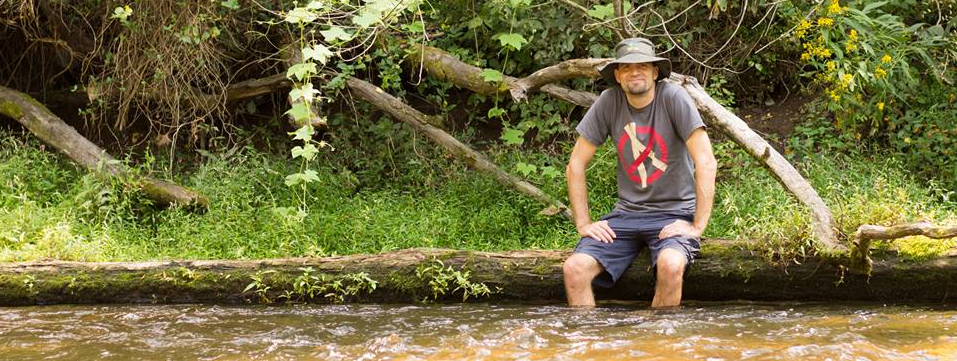And at the same time, it couldn't be more personal.
We've been operating as a DAC since before the EOS mainnet launch (almost a year now!), and we're constantly learning new things about the process and about ourselves (and maybe even patterns within human nature). I was struck by something Rob said during our eosDAC Custodian meeting this morning which prompted the writing of this post.
When custodians comment on worker proposals, it's not personal.
This, I think, is a very important aspect of how a DAC functions. A Decentralized Autonomous Community removes the unaccountable hierarchy and brings things into focus in terms of value creation. The budget is clear, the resources available are there to be seen, and the work to be accomplished is known. We then, as a community, come together and vote in custodians who will decide which proposals will get approved and how the funds will be allocated. If there is not enough value created by the proposal or there is not enough stored value within the DAC to pay for the proposal, then it may not be approved. That does not at all reflect negatively on the individual who submitted the proposal.
One of the things I've noticed as a Custodian for the DAC and a worker for the DAC, is it's very difficult not to take things personally. When we put a price on our work (or the work of others), it can easily be seen as a reflection of self-worth or perceived worth of an individual. The work we do is our art and in some cases it's the result of decades of experiences, study, and effort to obtain those skills. It stings to hear our community say, "Sorry, that's not valuable enough." Because a DAC is completely voluntary and those creating value can come and go as they please, it's really important to foster and atmosphere of cooperation and encouragement so people's feelings aren't hurt in these situations.
Another dynamic of these value exchanges has to do with fear. When we align our lives to participate in a DAC in exchange for value to support our families, it can become an expectation. If that expectation isn't met, we get frustrated and worried. We've been so trained by the employee/employer dynamic, that we want a sense of security knowing the check is in the mail. Unfortunately (or fortunately, depending on your perspective), that's not what a DAC provides. Everything is voluntary and there are no guarantees. Participating in a DAC is like participating in something larger than yourself that you take responsibility for, both in terms of the upside and the downside.
Many of us have worked with slackers who get paid just for showing up and draining value instead of creating it.
Unless you've owned your own business, you may not realize how destructive this can be. Those who provide cherished services to their communities may disappear if they can't sustain themselves. In a DAC context, the lack of traditional security provided to those who submit worker proposals is offset by the level of freedom and autonomy they enjoy. Unlike traditional corporate structures, everyone is free to come and go as they please. Once a worker proposal is completed, people often move on to other adventures and areas of interest.
To explain the subtitle of this post, it couldn't be more personal, I also want to highlight how this voluntary dynamic requires us to be extra kind to one another. Since there is no guarantee the current active worker proposal will be renewed again next month, we have to put in extra effort to communicate effectively and work through any "drama" as adults because there is no boss to settle things and demand we get back to work.
This is a new paradigm for structuring human work (which I see as value creation and changing reality). I'm realizing it's not for everyone. If people have some inner healing or false-ego work to do, those issues may become immediately apparent working with a DAC. Our assumptions about our self worth, the value we create for others, and the fear we have about being "enough" or even the impostor syndrome can all mess with our emotions. If we're on a path of self-improvement and self-discovery, this can be a beautiful thing.
I hope you'll join us in this DAC experiment at eosDAC. You can find out more about what we're doing via our beautiful website at https://eosdac.io/
If you'd like to see a walkthrough of the DAC Member Client we're using to run the DAC, you can do so here:
If you're interested in building your own DAC, keep an eye on the eosDAC Factory Github repo: https://github.com/eosdac/eosdac-factory
If you have any questions about DACs or have a project you think could benefit from becoming a DAC, you can book my time as an advisor and consultant here: https://lukestokes.info/
As it relates to my role as an eosDAC custodian via my lukeeosproxy account, I want to clarify my priorities so you can know what to expect when voting for me as a custodian:
Currently, I'm leaning towards focusing my votes in three areas: 1) How does this directly impact the revenue of the DAC via increasing block producer rankings? Is there any evidence to show success so far? 2) How does this directly impact the core value offering of DAC Enabling? Does it improve the software directly in some way? 3) How does this help educate people on and communicate the value of the DAC software? The last one is going to be lowest on my priority list based on our current budget.

Luke Stokes is a father, husband, programmer, STEEM witness, DAC launcher, and voluntaryist who wants to help create a world we all want to live in. Learn about cryptocurrency at UnderstandingBlockchainFreedom.com










